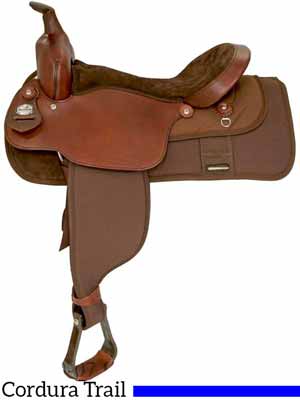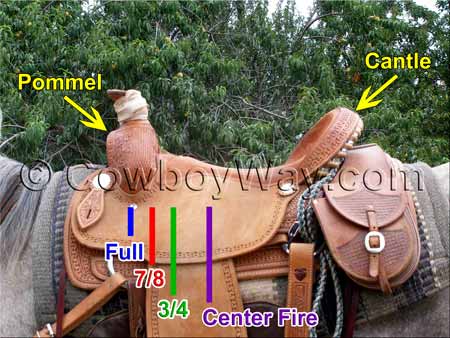Made in the USA, Fabtron saddles offer a new era of design features and construction techniques that effect fit and comfort.
Looking for a specific type of Fabtron saddle? You might like our
Fabtron saddle menu.
Made by Fabtron Saddlery, Fabtron saddles are known for their quality, fit, comfort, and competitive prices. They are proud to say they feel they use the most up-to-date and top-of-the-line saddle trees manufactured. Fabtron makes their saddles in Maryville, Tennessee.
The Fabtron saddles below include trail saddles, endurance saddles, and other types of saddles. To see only Fabtron trail saddles, please click here: Fabtron Trail Saddles.
Below: A Fabtron trail saddle from HorseSaddleShop.

From eBay, HorseSaddleShop and Amazon



See more Fabtron saddles on HorseSaddleShop
See more Fabtron saddles on eBay
About Fabtron
Fabtron has been in business since 1977. They are proud to say their saddles are made in the USA in Maryville, TN.
In addition to a full line of tack, Fabtron uses high quality leather to make saddles, and also saddles that are leather/synthetic hybrids. They work out of a 45,000 square foot building that houses their warehousing, manufacturing, finished-goods, and shipping space.
Saddle Rigging Positions
On a Western saddle, rigging positions are commonly referred to as “full,” “7/8,” and more. Here is a quick breakdown of what those common rigging positions mean.
Full Rigging: The front cinch position is the full distance from the cantle to the pommel. This puts the front cinch directly beneath the pommel of the saddle.
7/8 Rigging: The front cinch position is 7/8 of the distance from the cantle to the pommel. This puts the front cinch a little farther back than a full rigged saddle.
3/4 Rigging: The front cinch position is 3/4 of the distance from the cantle to the pommel. This puts the front cinch a little farther back than a 7/8 rigged saddle.
Center Fire Rigging: The front cinch position is (approximately) centered between the cantle and the pommel.

More Rigging Terms
Single Rigged: This means there is a front cinch, but not a back cinch (sometimes called a “flank cinch”). The term “single rigged,” by itself, does not let you know the position of the front cinch (full, 7/8, etc.).
Double Rigged: This means there is a front cinch and a back cinch. The term “double rigged,” by itself, does not let you know the position of the front cinch (full, 7/8, etc.).
Full Double Rigged: This means there is a front cinch and a back cinch, and that the front cinch is in the “full” rigged position (the full distance from the cantle to the pommel).
You might also like: